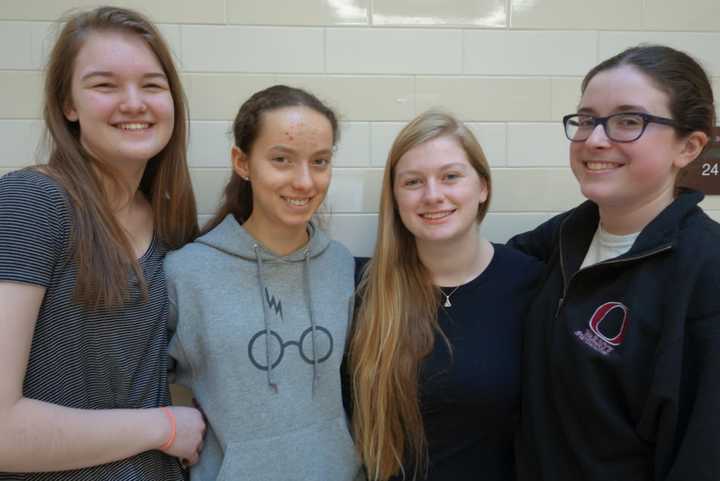Four Ossining High School students made the semifinals in Regeneron's Science Talent Search. Each student receives a $2,000 award, with an additional $2,000 going to the scholar’s school.
Sarah Hoffman investigated Alzheimer’s disease-related protein expression and immune cell activation in the brains of male and female mice as well as humans. Hoffman found that female mice have a more severe Alzheimer’s pathology in both brain regions and concluded that research must consider sex differences.
The findings may improve the way researchers analyze the disease and enhance understanding of how gender affects its development.
Skyler Jones studied the use of perovskite crystals as semiconductors in solar cells, which are the parts of the solar panels that convert sunlight into electricity. If scientists can figure out why perovskites are so efficient, manufacturers will be able to make semiconductors that are as efficient as but cheaper than silicon solar cells.
Catherine Kamp investigated the patterns of microplastic abundance as a percentage of developed land and human population density within five watersheds of tributaries in the Hudson River Valley. Her study highlights the extent to which local tributaries are saturated with the pollutant.
Emma San Martin compared energy patterns between able-bodied people and transtibial amputees walking at different speeds, since energy prediction is important for designing comfortable and efficient prostheses. Martin found that metabolic energy expenditure was significantly higher for amputees. In the future, the method may be applied to prosthetic design, physical therapy, and robotics.
Regeneron will announce the 40 finalists on Jan. 23. They will spend a week Washington in March, where they will compete for more than $1.8 million in awards, including the top award of $250,000.
Click here to follow Daily Voice Chappaqua and receive free news updates.
